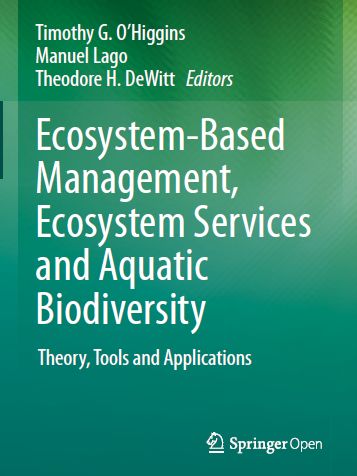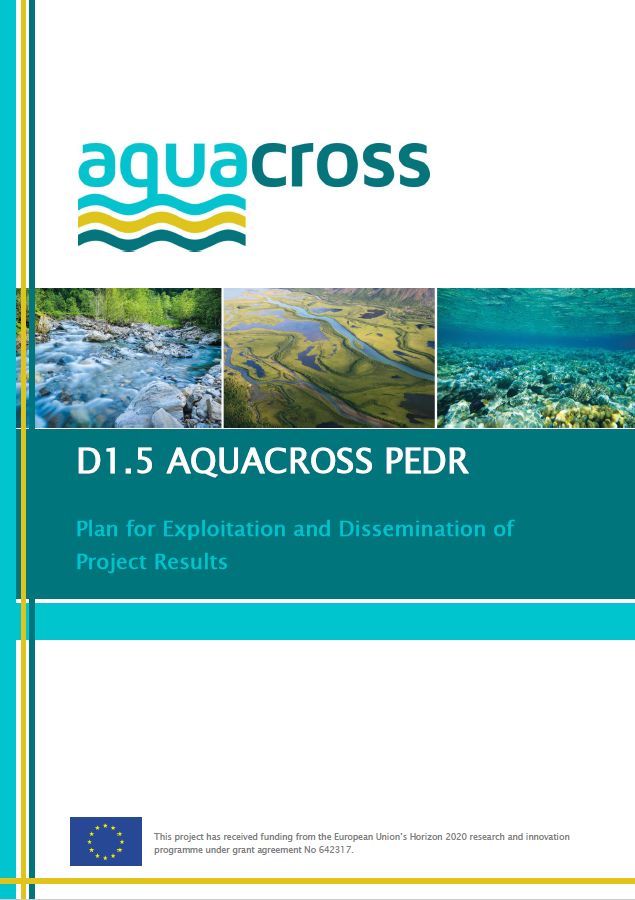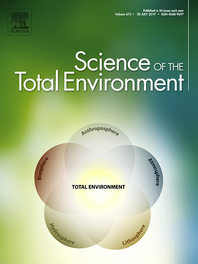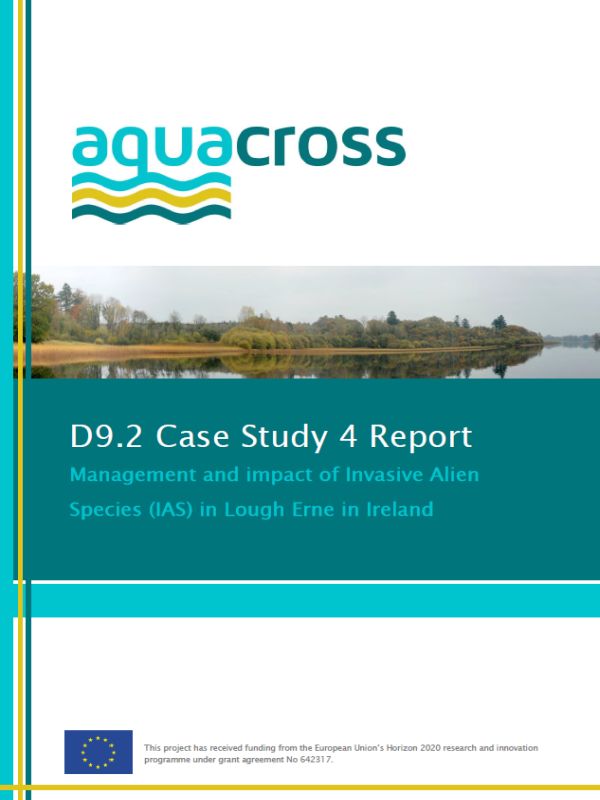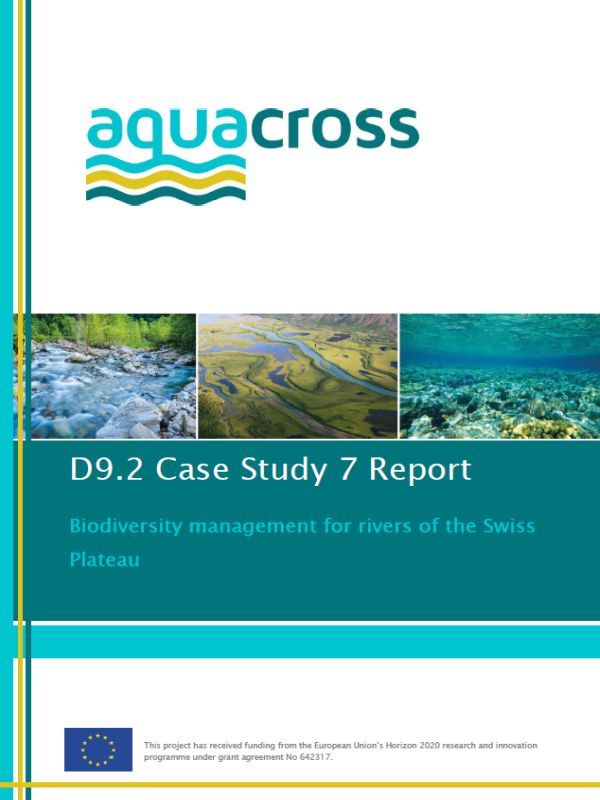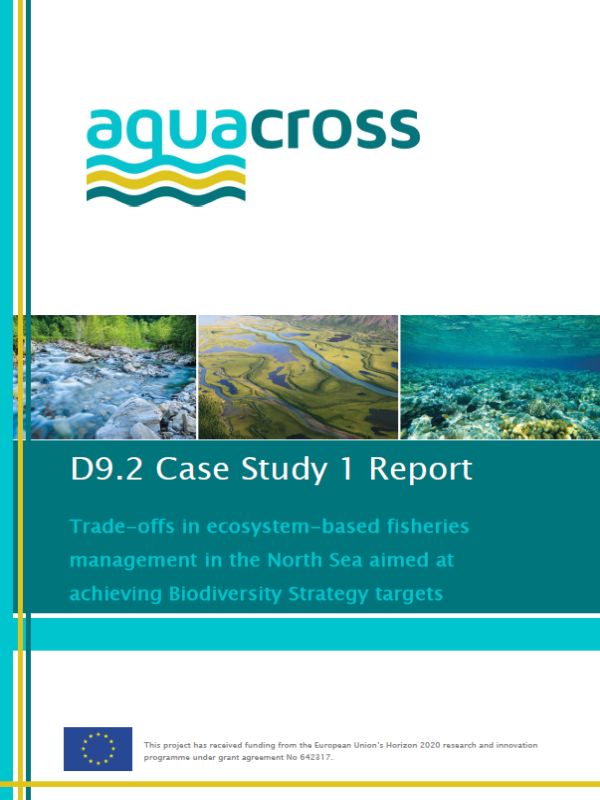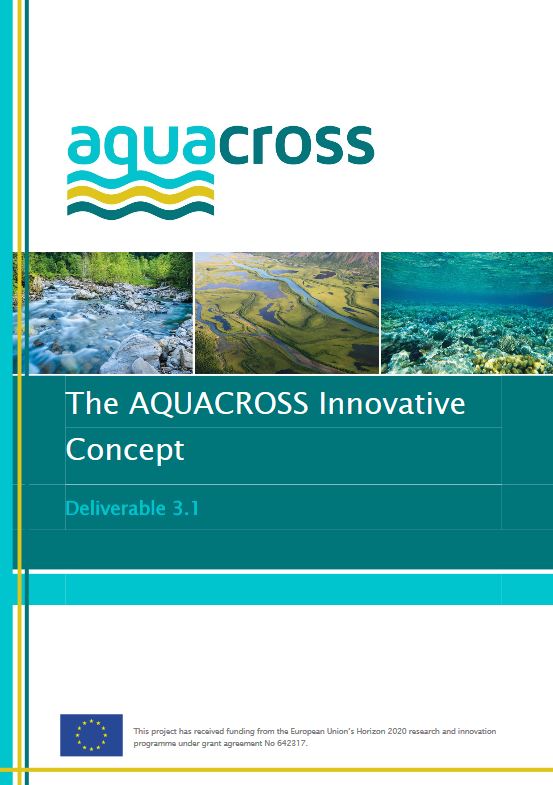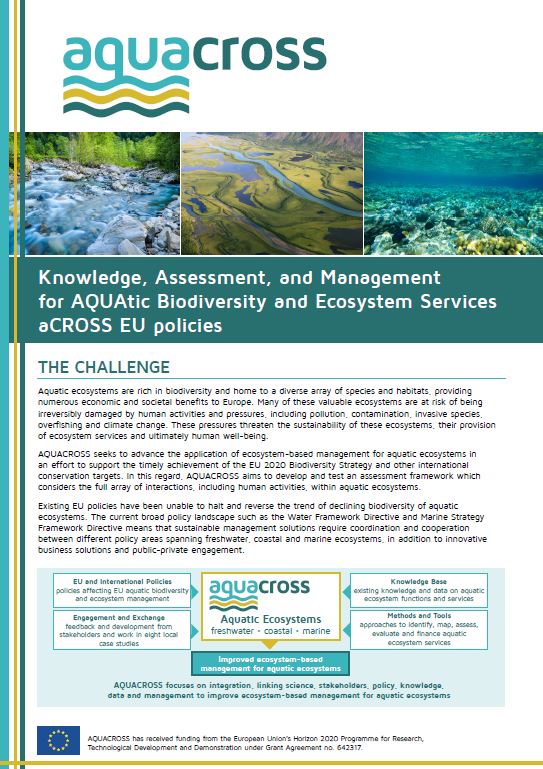Developing the AQUACROSS Assessment Framework
Deliverable 3.2
- Publication
- Citation
Gómez et al. (2016) Developing the AQUACROSS Assessment Framework. Deliverable 3.2, AQUACROSS, European Union's Horizon 2020 Framework Programme for Research and Innovation Grant Agreement No. 642317.
Aquatic biodiversity is declining worldwide and faster than in terrestrial systems. To better protect these vulnerable species and safeguard the valuable services they provide and from which humans depend, is a key goal of the AQUACROSS project. To do this, it is necessary to understand both natural and social systems, as well as their interlinkages, so we can provide better management responses.
In lieu of this work, the AQUACROSS consortium published a report describing an analytical Assessment Framework, which aims to integrate and understand these complex interlinkages between natural and social systems, to be applied in real-world case studies in the project. The Assessment Framework covers the various steps needed to assess local aquatic management examples in a holistic manner—from the definition of policy challenges and the setting of objectives to the identification of opportunities, the screening of innovative responses and the design, implementation and assessment of alternative courses of action. All these elements are integrated into the comprehensive framework, which aims to capture all relevant interactions at stake. The report is available for download.
The AQUACROSS Deliverable 3.2 presents a common framework for the assessment of aquatic ecosystems needed for the development of integrated management concepts. This framework integrates ecological and socio-economic aspects in one analytical approach, and considers relevant aspects for management of aquatic ecosystems, specifically in relation to resilience and uncertainty. Furthermore, the Assessment Framework also reflects a joint understanding of the key impacts on aquatic ecosystems between scientists, policy-makers and stakeholders and among ecosystem types (freshwater, coastal, and marine). Insights from a stakeholder workshop held in Berlin (March 2016) and the first AQUACROSS Forum held in Alcalá de Henares (Madrid, June 2016) greatly benefitted this process.
This report, led by Fundación IMDEA Agua (link is external), represents a living document that facilitates synergies and identifies critical linkages between the different elements of the project:
- The analysis of links between drivers of aquatic ecosystem change and relevant pressures.
- The assessment of causalities between biodiversity and ecosystem functions and services, as well as their abiotic components.
- The impact of drivers on the status and trends of biodiversity, ecosystem functions and services.
- The development of indicators to capture all relevant social-ecological-economic dimensions at the case-study level and beyond.
- The design and implementation of ecosystem-based management approaches, as innovative responses to enhance the status of aquatic ecosystems, so as to achieve meaningful policy objectives (namely the EU 2020 Biodiversity Strategy and other global biodiversity targets).
The Assessment Framework will be tested in the eight AQUACROSS case studies (link is external) and applied to a suite of innovative and applicable management solutions for aquatic ecosystems. The framework, thus, follows an ‘idea to application’ approach, building on existing knowledge and generating innovative responses to policy coordination challenges. In addition, this Assessment Framework will be reviewed and refined throughout the project’s duration. For that purpose, the development of the framework and, therefore, the investigation into the specific elements for assessment, is (i) mindful of the practical challenges to be faced in terms of applicability (e.g., linking policy and science in the three aquatic realms); (ii) makes the most out of existing knowledge to enhance current Ecosystem-based Management practice; and (iii) ensures relevance.






